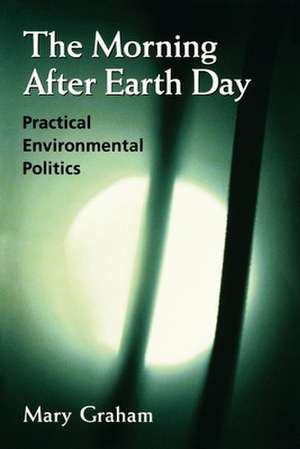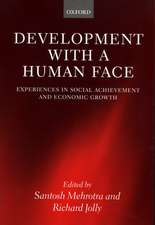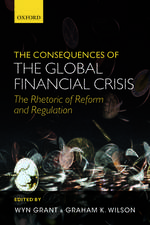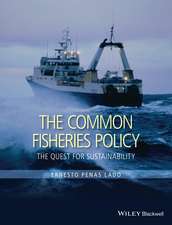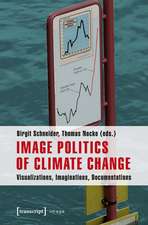The Morning After Earth Day: Practical Environmental Politics
Autor Mary Grahamen Limba Engleză Paperback – mai 1999
As we approach the 30th anniversary of Earth Day (the first of its kind was April 1970), congressional debate about environmental protection often remains paralyzed and polarized. But across the country, environmental pragmatism is gaining ground. The Morning after Earth Day explores how policymakers, business executives, and citizen groups are fighting novel political battles and sometimes making peace with surprising compromises. After a generation of progress in reducing large sources of industrial and municipal pollution and in improving management of public lands, today's environmental conflicts are more complex. They involve controlling pollution caused by farmers, small businesses, drivers of aging cars, and homeowners, as well as minimizing ecological threats on private land. Remedies often lie in politically treacherous territory--persuading ordinary people to change their daily routines rather than ordering big business to adopt new technology or government officials to manage land differently. As Mary Graham shows, practical approaches are resolving immediate disputes and providing clues for future policy. But core dilemmas remain. They include how to reconcile environmental protection with respect for private property, how to balance federal and state authority, and how much to rely on behavioral versus technological change. Only by reclaiming the debate about these dilemmas from extremists and confronting them head-on will the nation build a solid foundation for the next generation of environmental policy. Copublished with the Governance Institute
Preț: 193.89 lei
Nou
Puncte Express: 291
Preț estimativ în valută:
37.10€ • 38.74$ • 30.71£
37.10€ • 38.74$ • 30.71£
Carte tipărită la comandă
Livrare economică 05-19 aprilie
Preluare comenzi: 021 569.72.76
Specificații
ISBN-13: 9780815732358
ISBN-10: 081573235X
Pagini: 153
Ilustrații: black & white illustrations
Dimensiuni: 152 x 229 x 13 mm
Greutate: 0.22 kg
Ediția:New.
Editura: Brookings Institution Press
Colecția Brookings Institution Press
ISBN-10: 081573235X
Pagini: 153
Ilustrații: black & white illustrations
Dimensiuni: 152 x 229 x 13 mm
Greutate: 0.22 kg
Ediția:New.
Editura: Brookings Institution Press
Colecția Brookings Institution Press
Notă biografică
Mary Graham, a visiting fellow in Governance Studies at the Brookings Institution, is codirector of the Transparency Policy Project at Harvard's Kennedy School of Government and president of the Governance Institute in Washington, D.C. She is the author of The Morning After Earth Day (Brookings/Governance Institute, 1999).
Descriere
A Brookings Institution Press and Governance Institute publication
As we approach the 30th anniversary of Earth Day (the first of its kind was April 1970), congressional debate about environmental protection often remains paralyzed and polarized. But across the country, environmental pragmatism is gaining ground. The Morning after Earth Day explores how policymakers, business executives, and citizen groups are fighting novel political battles and sometimes making peace with surprising compromises.
After a generation of progress in reducing large sources of industrial and municipal pollution and in improving management of public lands, today's environmental conflicts are more complex. They involve controlling pollution caused by farmers, small businesses, drivers of aging cars, and homeowners, as well as minimizing ecological threats on private land. Remedies often lie in politically treacherous territory--persuading ordinary people to change their daily routines rather than ordering big business to adopt new technology or government officials to manage land differently.
As Mary Graham shows, practical approaches are resolving immediate disputes and providing clues for future policy. But core dilemmas remain. They include how to reconcile environmental protection with respect for private property, how to balance federal and state authority, and how much to rely on behavioral versus technological change. Only by reclaiming the debate about these dilemmas from extremists and confronting them head-on will the nation build a solid foundation for the next generation of environmental policy.
As we approach the 30th anniversary of Earth Day (the first of its kind was April 1970), congressional debate about environmental protection often remains paralyzed and polarized. But across the country, environmental pragmatism is gaining ground. The Morning after Earth Day explores how policymakers, business executives, and citizen groups are fighting novel political battles and sometimes making peace with surprising compromises.
After a generation of progress in reducing large sources of industrial and municipal pollution and in improving management of public lands, today's environmental conflicts are more complex. They involve controlling pollution caused by farmers, small businesses, drivers of aging cars, and homeowners, as well as minimizing ecological threats on private land. Remedies often lie in politically treacherous territory--persuading ordinary people to change their daily routines rather than ordering big business to adopt new technology or government officials to manage land differently.
As Mary Graham shows, practical approaches are resolving immediate disputes and providing clues for future policy. But core dilemmas remain. They include how to reconcile environmental protection with respect for private property, how to balance federal and state authority, and how much to rely on behavioral versus technological change. Only by reclaiming the debate about these dilemmas from extremists and confronting them head-on will the nation build a solid foundation for the next generation of environmental policy.
